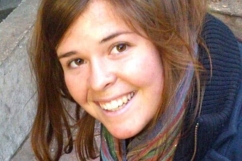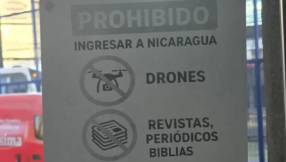Evidence that ISIS are manufacturing and using chemical weapons is mounting, a US official has told the BBC.
ISIS has used mustard gas on at least four occasions on both sides of the Syria-Iraq war, the official claimed.
"They're using mustard," the individual said. "We know they are.
"We've seen them use it on at least four separate occasions on both sides of the border - both Iraq and Syria."
The chemical was being used in powder form and packed into explosives, the official added.
When the weapon was detonated, the mustard-infused dust would blister those exposed.
It is widely available and easy to make, prompting fears its use could become increasingly widespread.
"We assess that they have an active chemical weapons little research cell that they're working on to try and get better at it," the official said.
Reports of chemical attacks from Kurdish fighters prompted an investigation by the US and a UN probe. Although the investigation is ongoing, the anonymous official said many intelligence agencies now believe there is now enough evidence to back up these claims.
Evidence which support the US official's views have been seen by a BBC team, working on the Syria-Turkey border.
"The terrorist Daesh [ISIS] launched 45 120mm-mortar shells tipped with chemical heads on Peshmerga positions, which led to the injury of a number of Peshmerga forces with burns on different parts of their bodies," a statement by the Peshmerga General Command said, referring to an attack in August.
The descriptions fit with the effects of mustard agents, which were initially used in chemical warfare during the First World War.
ISIS are not the only group accused of using chemical weapons in the region. President Assad's Syrian government and the opposing rebel groups have also been suspected of using chemical weapons. Mustard agent was formerly deployed prolifically by Saddam Hussein's regime in the Iran-Iraq war.
The demand for Syria's government to give up its weapons was triggered in part by civilian deaths in the country's civil war, including chemical attack on Ghouta in August 2013.
Despite the Assad regime's disarmament, reports continue of chemical attacks on civilians allegedly carried out by the country's military.
















